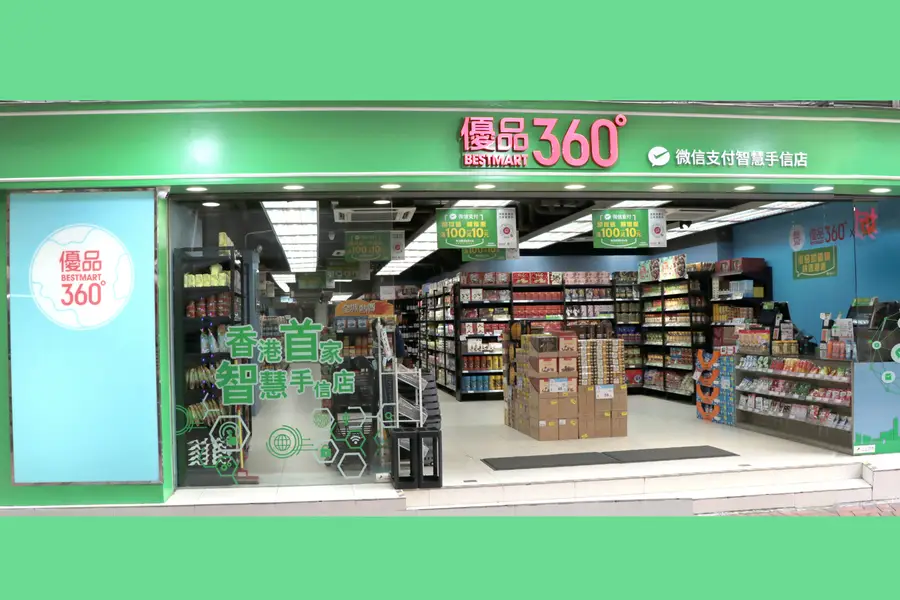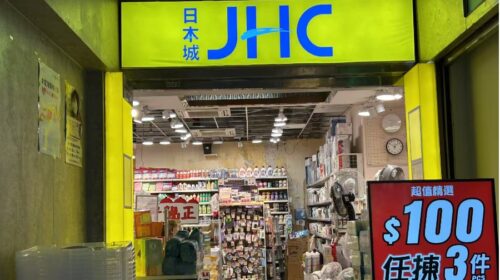Helmed by new chairman, Best Mart 360 navigates changing Hong Kong landscape

With a personal scandal involving its CEO behind it, the Hong Kong snack chain is trying to hone its hometown advantage as local consumers flock across the border to shop
Key Takeaways:
- Best Mart announced its appointment of a new chairman, ending a period of controversy after its CEO was investigated for corruption unrelated to the company
- Support from backer China Merchants Group could give the Hong Kong snack seller an edge over increasing competition from Mainland Chinese retailers
By Edith Terry
It wasn’t much of a welcome for Lu Rong, newly named as chairman of Best Mart 360 Holdings Ltd. (2360.HK), a Hong Kong snack retailer emerging from controversy surrounding its CEO. The company’s shares sank marginally in the two trading days after the announcement, though they’re up nearly 40% this year.
Despite launching a new chapter for the company, the weak response to the appointment of Lu, who was already a Best Mart executive director, reflects steep challenges facing the company in the face of a rapidly changing Hong Kong retail environment. Lu is a 22-year veteran of China Merchants Hoi Tung Trading Co., Best Mart’s controlling shareholder and a subsidiary of China Merchants Group, a major Chinese conglomerate based across the Hong Kong border in Shenzhen.
Lu arrives in his new position alongside another China Merchants veteran, Sun Liang, who was also nominated to become a new executive director. The two 45-year-olds represent fresh faces for the company following the resignation of Li Guanpeng, who was chairman since 2021.
With Lu’s arrival kicking off a new chapter for the company, investors are now more likely to focus on what Best Mart must do to right its tilting ship. The company has closed its only two stores on the Chinese Mainland and one of its seven stores in Macao, citing fierce competition. Meanwhile, it expanded from 159 to 170 stores in Hong Kong last year, even as retail sales in the city fell 7.3% and visitor arrivals remained well below pre-pandemic levels.
At the same time, some questions remain unresolved involving the arrest a year ago of CEO Hui Chi-kwan by Hong Kong’s anti-corruption watchdog. Best Mart said at the time that the incident was unrelated to its business. Hui had been involved in an earlier criminal case in 2012, when he was sued by luxury giant Burberry for serving as an agent for a Burberry knockoff brand.
Best Mart’s latest results aren’t stellar, though the new store openings have allowed the company to keep growing. Its revenue rose 8.2% year-over-year to HK$2.8 billion ($257 million) last year, and its profit rose 5.3% to HK$247.5 million.
While reaction to the new executive appointments was muted, investors were more excited about the company just two weeks earlier. On July 22, Best Mart’s shares rose by 13% after reports that e-commerce giant JD.com was buying 70% of Kai Bo Food Supermarket, another Hong Kong retailer, for HK$4 billion. Investors speculated that JD.com might be on the prowl for more brick-and-mortar retail assets in Hong Kong to leverage its vast supply chain and delivery infrastructure on the Mainland.
Other Hong Kong retailers got a concurrent lift, including supermarket chain Aeon Stores (0984.HK), which rose 25%, and CEC International (0759.HK), operator of the rival 795 Store snack chain, which more than doubled.
Best Mart was an early part of a wave of Mainland China takeovers of established Hong Kong consumer brands. Founded in 2013 near the Hong Kong border with Shenzhen to capitalize on growing cross-border traffic, China Merchants acquired 49% of the company in March 2023 for HK$862 million. Both Best Mart and 795 Store offered affordable, casual shopping geared toward tastes of Mainland Chinese buyers. Somewhat ironically, they are now seen as established Hong Kong brands, reflecting rapid changes in the city’s retailing landscape.
Dominated by local companies
Hong Kong’s retail sector has long been dominated by incumbents like DFI Retail (D01.SI), which operates the Wellcome, Mannings and 7-Eleven chains in the city, and the ParknShop supermarket chain, owned by CK Hutchison Holdings (0001.HK). Wellcome and ParknShop together controlled 84% of Hong Kong grocery market in 2021, according to data aggregator Statista, and have long been a local duopoly.
But the dominance of such old-timers is being challenged by changing shopping habits of Hong Kong consumers, who increasingly look across the border to Shenzhen and beyond to buy items at lower prices. Responding to that challenge, DFI recently announced a tie-up with Mainland Chinese online grocer Dingdong (DDL.US) to stock cheaper fresh produce from the Mainland in Wellcome’s 280 Hong Kong stores.
JD.com and Alibaba’s Taobao are also encroaching on the market, launching discounts and subsidies for the first time for online customers in Hong Kong during the recent 618 shopping festival in May and June.
Meantime, the list of brick-and-mortar Mainland Chinese retailers arriving in Hong Kong continues to grow, including the likes of Luckin Coffee, fast fashion brand Urban Revivo, Taobao’s PapaHome offline furniture outlet and HotMaxx, a discount chain. Many are taking advantage of low rents in a depressed property market, accounting for nearly 30% of retail leasing demand, according to Hong Kong property agent Midland Realty.
Best Mart says it has developed “various strategies to navigate these difficulties,” according to its latest annual report. It has begun importing “trending brands” from Mainland China and specialty foods from “around the world” to attract tourists. It is also drawing on its ties to China Merchants, entering into a sales and procurement agreement to take advantage of its wealthy parent’s network of food importers and distributors, as well as its logistics and supply chain subsidiaries.
Compared to some of its Hong Kong peers, Best Mart is doing relatively well in the eyes of investors. Its stock currently trades at a price-to-sales (P/S) ratio of 0.81, compared to money- losing Aeon’s miniscule 0.02 and CEC’s 0.10. Even DFI Retail, long considered a dominant force on the Hong Kong retailing scene, has a weak P/S ratio of 0.38, reflecting the growing challenge it faces from aggressive Mainland rivals.
Many believe the Mainland brands are using Hong Kong as a waystation to international markets, since the city’s 7.1 million population makes it a relatively small prize, despite its high living standards. That may work to Best Mart’s advantage due to its focus on Hong Kong consumers, who still show a strong preference for bricks-and-mortar over online shopping. But even after moving past its CEO scandal, the company’s prospects will be limited if it chooses to stay focused on its mature – and quickly changing – home retail market.
To subscribe to Bamboo Works weekly free newsletter, click here
This story has been corrected to show that Hui is still CEO





